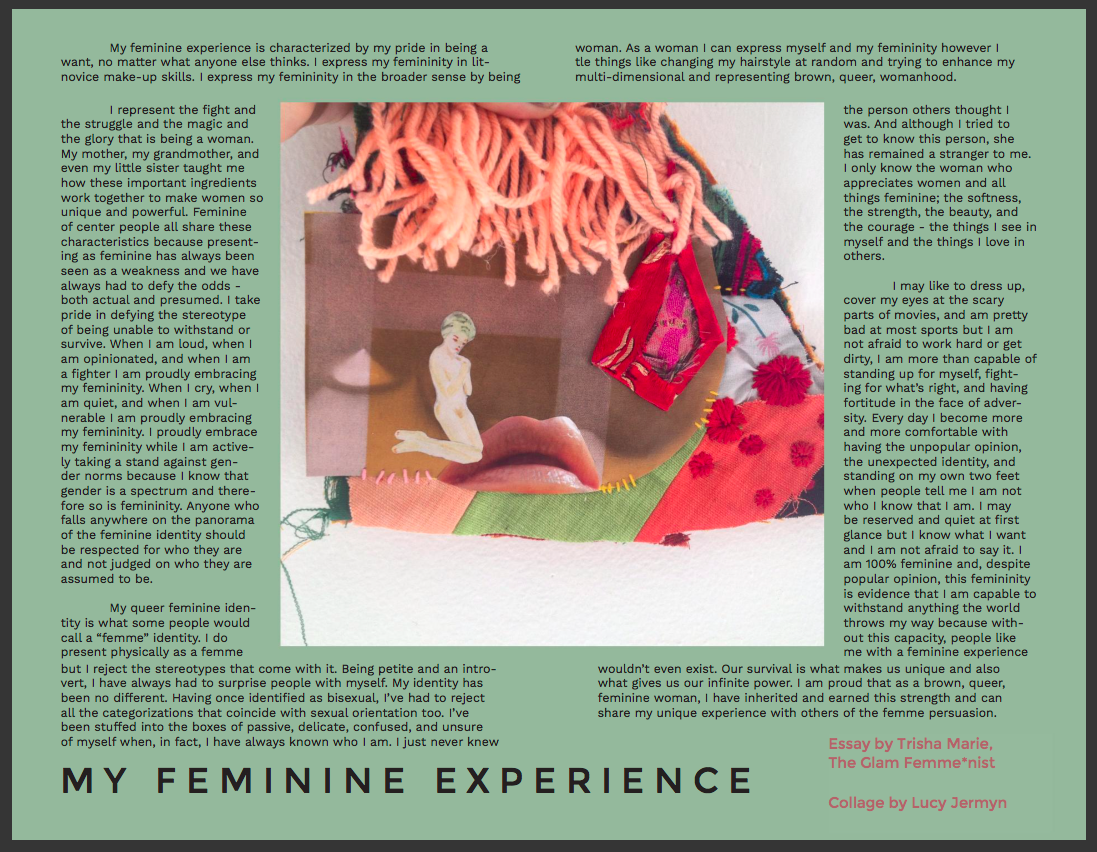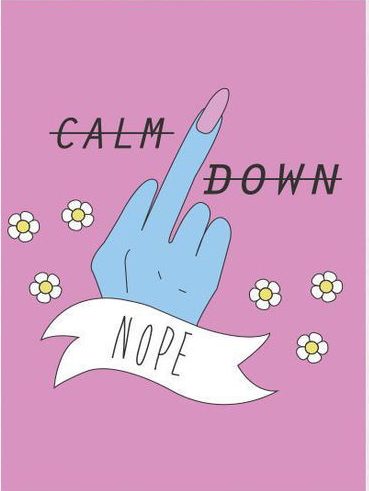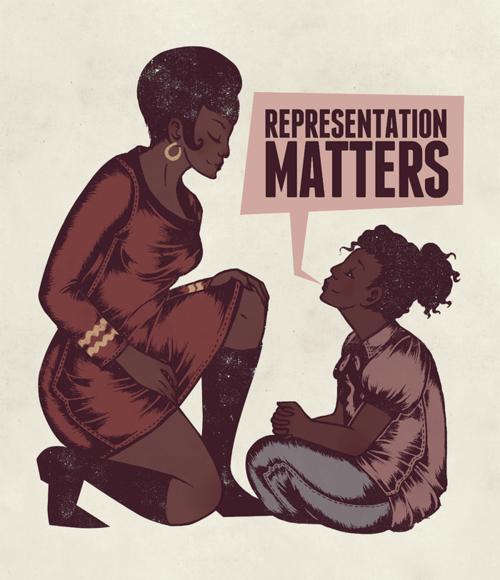
My Feminine Experience, for She Cult
My feminine experience is characterized by my pride in being a woman. As a woman I can express myself and my femininity however I want, no matter what anyone else thinks. I express my femininity in little things like changing my hairstyle at random and trying to enhance my novice make-up skills. I express my femininity in the broader sense by being multi-dimensional and representing brown, queer, womanhood.
I represent the fight and the struggle and the magic and the glory that is being a woman. My mother, my grandmother, and even my little sister taught me how these important ingredients work together to make women so unique and powerful. Feminine of center people all share these characteristics because presenting as feminine has always been seen as a weakness and we have always had to defy the odds – both actual and presumed. I take pride in defying the stereotype of being unable to withstand or survive. When I am loud, when I am opinionated, and when I am a fighter I am proudly embracing my femininity. When I cry, when I am quiet, and when I am vulnerable I am proudly embracing my femininity. I proudly embrace my femininity while I am actively taking a stand against gender norms because I know that gender is a spectrum and therefore so is femininity. Anyone who falls anywhere on the panorama of the feminine identity should be respected for who they are and not judged on who they are assumed to be.
My queer feminine identity is what some people would call a “femme” identity. I do present physically as a femme but I reject the stereotypes that come with it. Being petite and an introvert, I have always had to surprise people with myself. My identity has been no different. Having once identified as bisexual, I’ve had to reject all the categorizations that coincide with sexual orientation too. I’ve been stuffed into the boxes of passive, delicate, confused, and unsure of myself when, in fact, I have always known who I am. I just never knew the person others thought I was. And although I tried to get to know this person, she has remained a stranger to me. I only know the woman who appreciates women and all things feminine; the softness, the strength, the beauty, and the courage – the things I see in myself and the things I love in others.
I may like to dress up, cover my eyes at the scary parts of movies, and am pretty bad at most sports but I am not afraid to work hard or get dirty, I am more than capable of standing up for myself, fighting for what’s right, and having fortitude in the face of adversity. Every day I become more and more comfortable with having the unpopular opinion, the unexpected identity, and standing on my own two feet when people tell me I am not who I know that I am. I may be reserved and quiet at first glance but I know what I want and I am not afraid to say it. I am 100% feminine and, despite popular opinion, this femininity is evidence that I am capable to withstand anything the world throws my way because without this capacity, people like me with a feminine experience wouldn’t even exist. Our survival is what makes us unique and also what gives us our infinite power. I am proud that as a brown, queer, feminine woman, I have inherited and earned this strength and can share my unique experience with others of the femme persuasion.
This essay was written for She Cult’s Fall 2016 E-zine. She Cult is a collective for feminine-of-center queer people based out of Emerson College.








